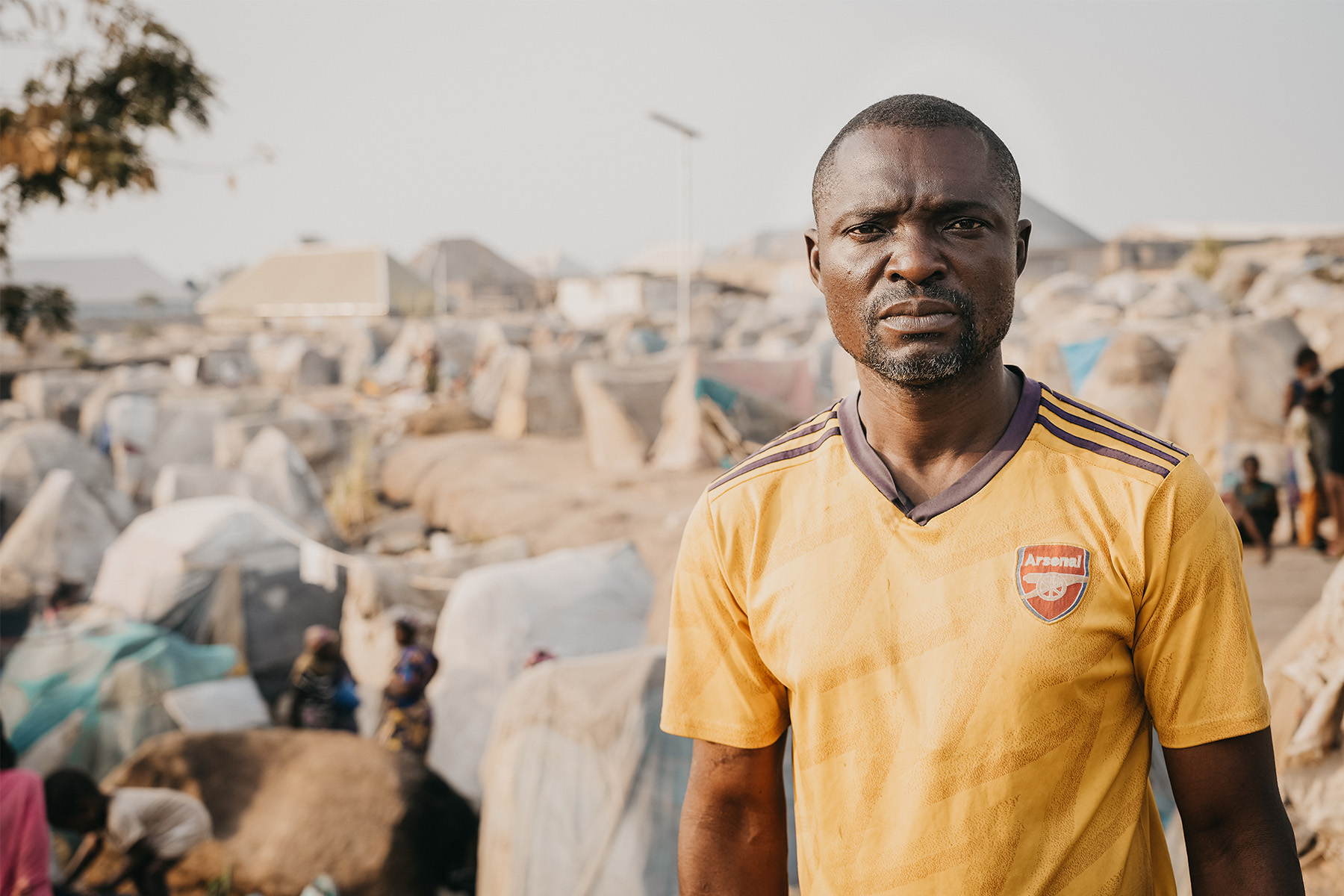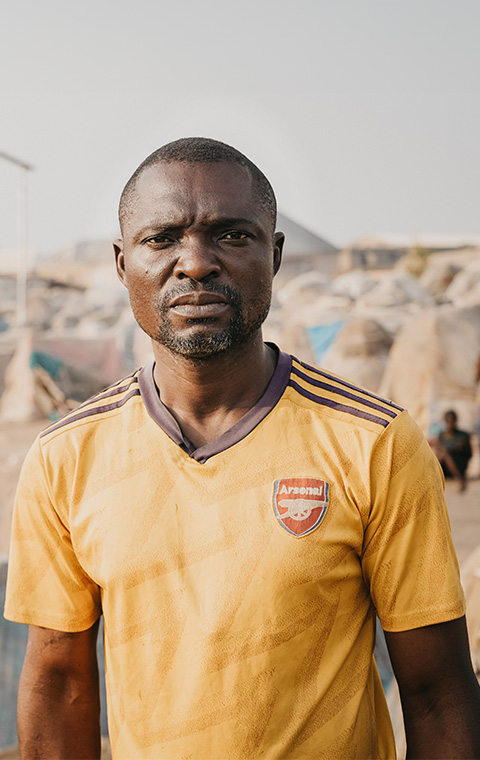CITY OF THE DISPLACED
Pastor Barnabas stands on a low wall and looks out into the hazy afternoon. Small makeshift domes sprawl across the landscape. His own small dome—a tent no wider than a double mattress—has been his home for the past five years, shared by his wife and children.
Inside, sheets of cardboard fashioned into a fragile roof, provide shade. Tarpaulin and food sacks, splayed and layered, form the sides. The structure is enforced with ropes and mosquito netting.
Every tent in this camp for Internally Displaced Persons is occupied by Christians who have fled the violence of Nigeria’s Islamic extremists.
Of the 34.5 million people currently displaced across sub-Saharan Africa, an estimated 16.2 million are believers.
Barnabas’ voice cracks with emotion as he talks of how persecuted Christians like him feel forgotten. Lost and swallowed by darkness.

WHEN VIOLENCE BROKE OUT
There was no warning.
Barnabas was walking on his farm with his brother and sister-in-law when they were besieged by rapid gunfire. As they fled, a spray of bullets caught and killed his brother and sister-in-law.
A Fulani extremist rushed upon Barnabas brandishing a machete. He sustained horrific injuries to his right arm.
His home and farmland were burnt.
Thousands of Christians in northern Nigeria have a similar story. Millions across Africa know what it’s like to lose everything to violence.
Barnabas can’t understand why the world looks on in silence.
Those that should be talking about this, aren’t.
No one is.
“Millions of Christians are displaced, here in Nigeria. Millions of Christians are displaced in the whole of Africa,” says Barnabas. “The news doesn’t care about it, politicians don’t talk about it, government don’t talk about it, global politics don’t talk about it. Nobody talks about it. We are remaining in darkness.”

HOPE BEYOND HOPELESSNESS
As Barnabas walks the gridded lanes of the camp, he explains that many of the occupants are women and children.
“Most of the men have gone out looking for work to get their daily food,” he says. “But it will not be enough for a meal for a day. This hunger leads them to go in search of food to eat and they are attacked by extremists. Many in this camp are affected. Many are injured. Many are killed.”
Barnabas carries the burden of their despair. They are, after all, believers like him—his family in Christ. He pastors thousands of displaced Christians in the camp, all in dire need of new hope.
When the day’s heat intensifies, they gather under a humble wooden shelter thatched with dried palm leaves.
Every face, solemn and honest, bears lines of hardship. He can feel their anguish for their children who no longer go to school. He knows they have more questions than he has answers.
Barnabas greets them and speaks from the heart. He acknowledges their hurt. He leads them in songs of worship to God. They sway and dance a little. The women clap in rhythm.
“Our eyes are on Him,” says Barnabas. “Our hope is on Him. We put our confidence on Him. He is great. He will do it. More than we expect.”


